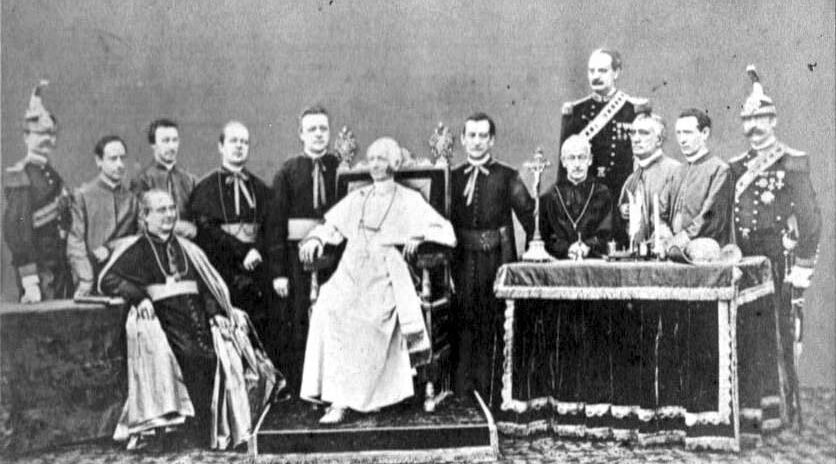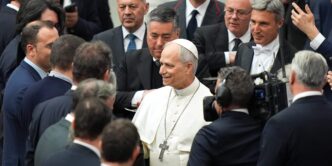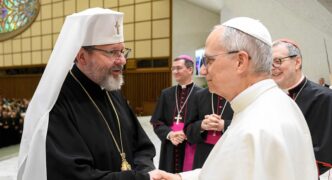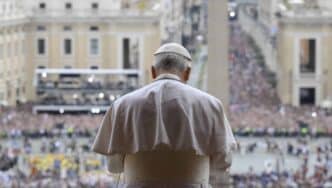When the name of the new pope, once known as Cardinal Robert Prevost, was announced as “Leo XIV,” many television commentators, politicians and people on the street — students of Catholic schools some 40 years ago — exclaimed knowingly, “Leo XIII!”
Their Catholic education was showing. For generations, Pope Leo XIII was presented as a hero in Catholic schools because he inspired a way of thinking that bettered the world and brightened the lives of all, including Catholics.
Choosing this name suggested that the new pope wished to imitate Leo XIII, and these former students thought that his intention was fantastic.
Many Catholics do not celebrate Leo XIII that much today, simply because they enjoy much of what he sought. So, who was Pope Leo XIII?
A pope for a tumultuous age
He was Giacomo Pecci, born March 2, 1810, near Rome, to well-to-do Italian parents. He studied under the Jesuits, attended a seminary, and was ordained a priest Dec. 31, 1837.
Appointed to the Vatican’s diplomatic service, he was nuncio, or papal ambassador, to Belgium. Then, from 1846 to 1877, he was the archbishop of Perugia. He was elected pope in 1878 and held the chair of Peter until his death in 1903.
During that time, the world was turning upside down. Catholics were deserting the Church in droves, believing that it had no interests in the troubles that they endured.
What historians call the Industrial Revolution was radically changing human life, especially family life. More and more people whose parents had been farmers now worked in factories, under awful, life-threatening conditions, 12 hours a day, often seven days a week, earning little, receiving no benefits. Children worked alongside parents in the factories, their schooling and health ignored, doomed to live without hope or opportunity.
The Church responds to the needs of its time
Europe, especially France, Italy and Germany, was in turmoil. Millions fled from Europe to North America, South America or Australia, where, too often, life was just as hard.
Leo XIII publicly called a spade a spade. Many Catholics in the pulpits and in the pews joined him, realizing that he said nothing new. He merely followed the most ancient Catholic tradition and the example of Jesus.
Church ministries to the poor, the unwanted, workers, and especially immigrants, bloomed. St. Frances Xavier Cabrini came to this country to serve Italian immigrants. She and other religious sisters founded countless American hospitals to care for sick immigrants, and schools to teach immigrant children, at no charge.The Josephite Fathers formed to serve onetime American slaves. St. Katharine Drexel established the Sisters of the Blessed Sacrament to serve Black and Indigenous communities. Missionaries hurried to Africa and Asia.
Slavery remained in Catholic Brazil. Leo XIII condemned slavery firmly in 1888. Brazil abolished slavery, but abolition brought down the Brazilian government. Not every Catholic followed the pope.
Pope Leo XIII’s witness for today
Leo XIII boldly addressed the plight of workers. In 1891, he issued the textbook of Catholic social justice teaching, the encyclical Rerum Novarum (“Rights and Duties of Capital and Labor”). In it, he declared as workers’ rights, not the gifts of employers, things that today are taken for granted: living wages, benefits, paid vacations, overtime, health care, certainly if injured on the job, pensions and decent working conditions. Most importantly, he endorsed the right of workers to unionize and to bargain collectively. He also said that employees must work honestly and diligently.
His basic principle always was that each human being, as a child of God, possesses a dignity that everyone, absolutely every Catholic, must respect, first and foremost.
Pope Leo XIV, as Father, later Bishop, Robert Francis Prevost, served in poor, rural Peru, seeing the harmful effects of climate change with his own eyes. He knew immigrants fleeing countries tragically upset by tyranny or poverty. He knew politicians who cared little for “little people.” He saw human misery, often severe, in conditions utterly unknown to Americans. He understands what dismissing the teachings of Jesus means.
He realizes that humanity desperately needs Christ, the only answer. Worldwide crisis is a real possibility. The clock is ticking. Leo XIII is a good model to follow.






